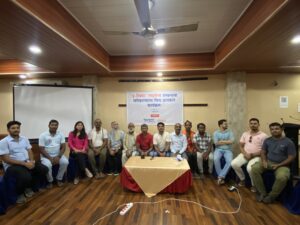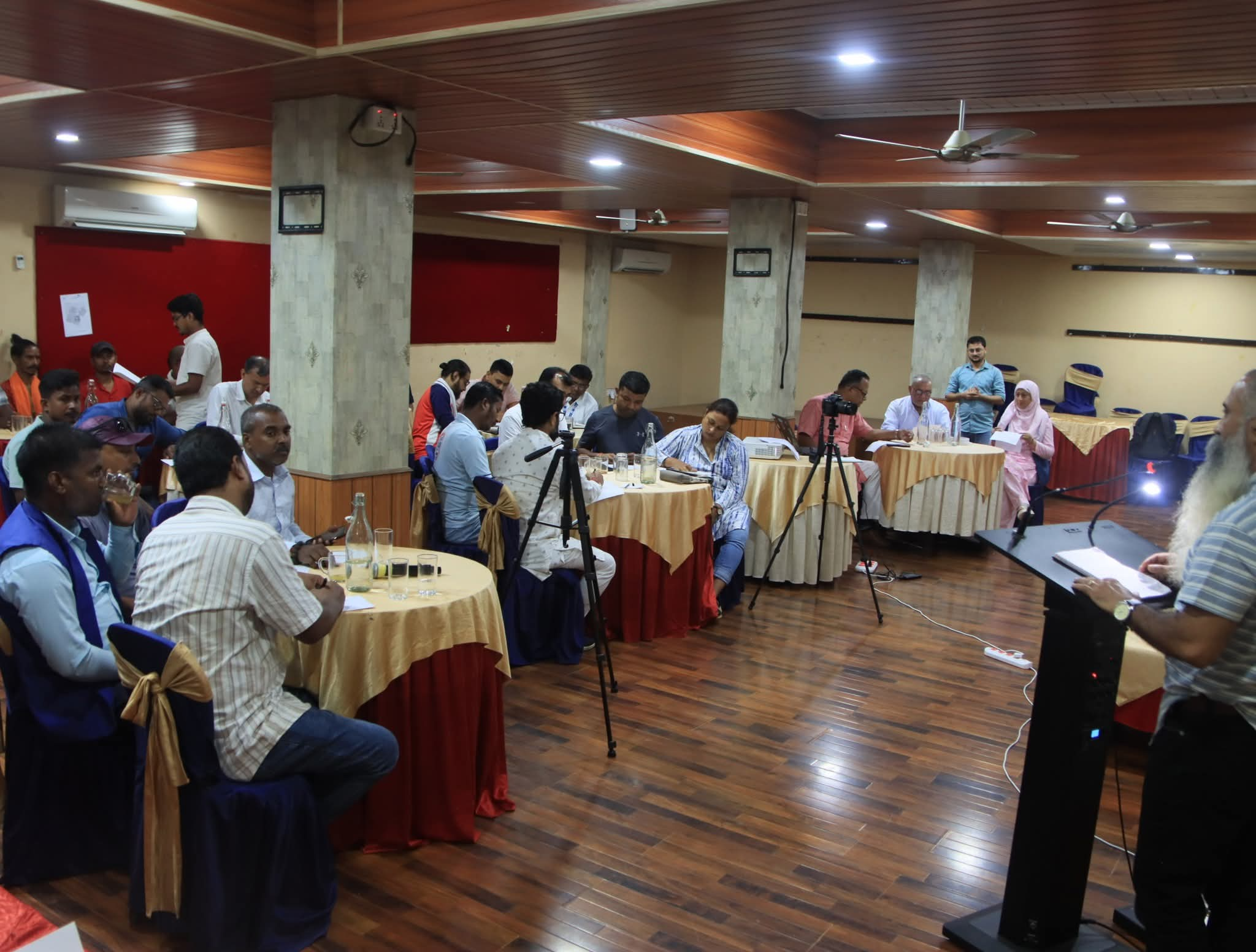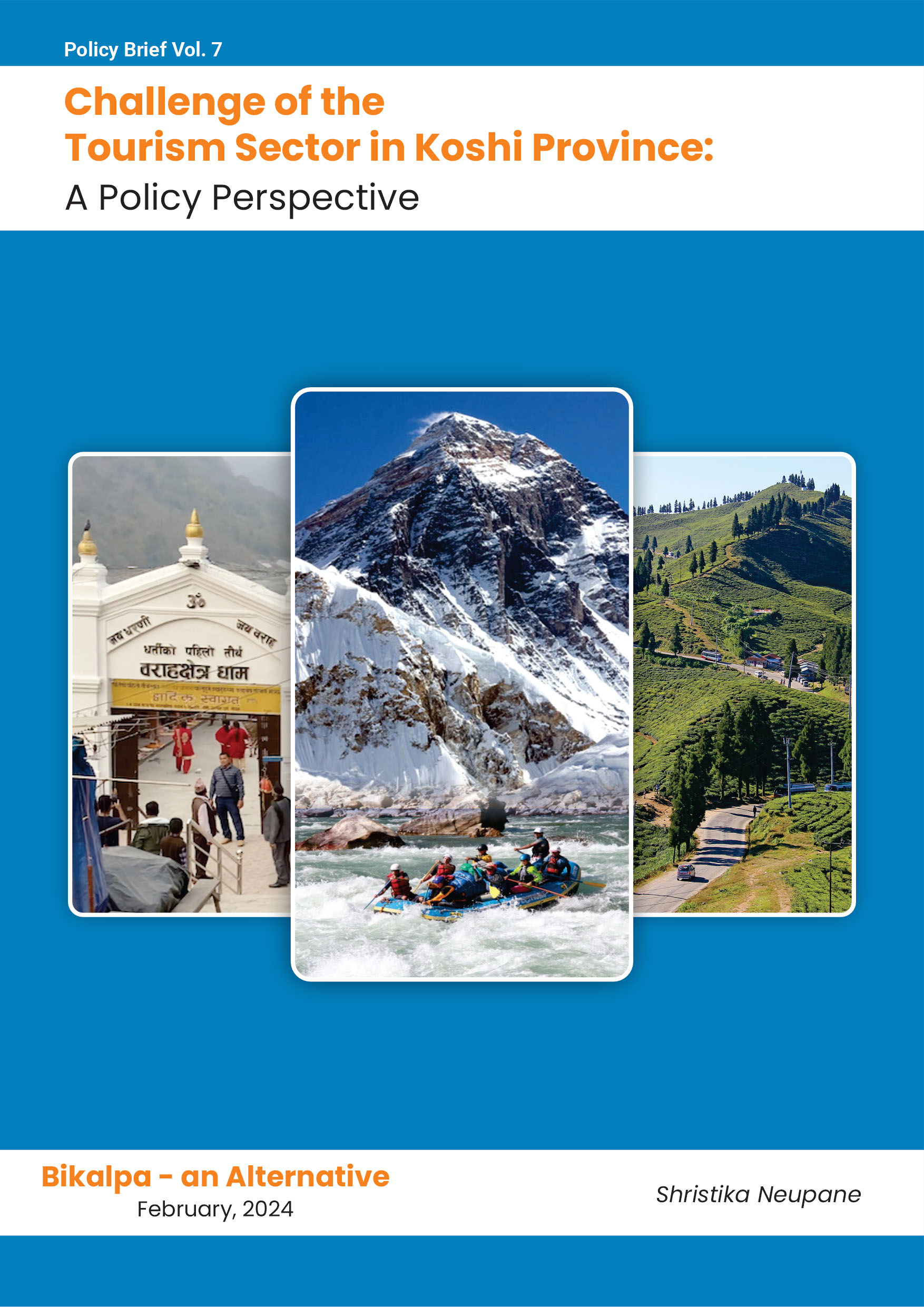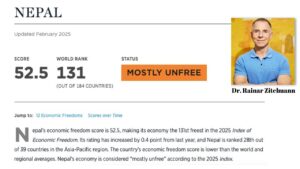On 24th August 2025, Bikalpa – an Alternative and Kayapalat collaboratively organized a Stakeholder dialogue to address the issue of driving licenses for e-rickshaw drivers in Madesh Province. The event was attended by 44 diverse participants including policymakers, local government authorities, bureaucrats, e-rickshaw drivers, e-rickshaw associations, Journalist, human right defenders and environmentalist.
The session was facilitated by Mr. Diwakar Uprety, Founder and Executive Director of Kayapalat, outlining the context and relevance of the event to confront the challenges that threaten the sustainability and safety of the growing e-rickshaw. Uprety begin with welcoming all the participants in the event. Adding to this, Mr. Basanta Adhikari, Founder and Executive Director of Bikalpa an Alternative shared the objective of the event and the challenge faced by e-rickshaw drivers for not having driving license.
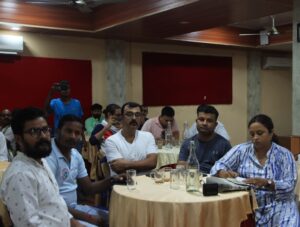
Following this, two impactful videos related to e-rickshaw were shown to the participants. One video was documentary which awared attendees on the rise of city rickshaws, their socio-economic significance, the increasing traffic management challenge, and the harsh reality that many operate without licenses. It advocated for replacing the current written test with a verbal exam, a shift that could open the door to greater licensing inclusivity.
And the other video shown was the case story of Durga Sangraula, a mother whose young son hanged himself because his father, a city rickshaw driver, was imprisoned for three years following a tragic accident that resulted in the death of an elderly pedestrian. With no license to his name, the legal consequences were severe. Meanwhile, Durga worked abroad, leaving the child without parental support and highlighting the human dimension of policy neglect.
Following this, Mr. Hom Pd Ghimire, Under-Secretary of Labour and Transportation Ministry shared a presentation which showed, there are around 80,000 three wheeler rickshaw (including electric and others) currently running in Madesh Province. He also mentioned that there’s already an Act made by province government to support and regulate e-rickshaw effectively in Madesh Province.
After this, the floor was opened for participants to share their opinions. In this session, e-rickshaw drivers expressed that many e-rickshaw drivers are illiterate, so they cannot pass written test. Written test must be abolished and alternative like oral test must be considered to ease the license obtaining process.
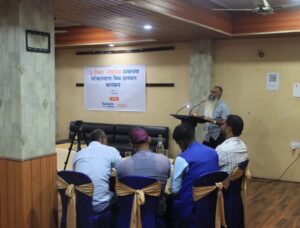
They further mentioned that, in order to regulate traffic, the Janakpur Sub-Metropolitan City allocated routes to 1,400 e-rickshaw drivers. However, since the total number of e-rickshaws exceeds this figure, they questioned, where other e-rickshaw drivers without designated routes will continue to operate?
Human rights defenders commented that, to earn for livelihood is a basic right of humans which is also guranteed by constitution. So, policies and laws should be made accordingly. Whereas, Journalists expressed that, we must consider the livelihood aspect of e-rickshaw drivers, but at the same time, it is responsible for traffic conjunction, which must be managed as well. Overall, discussions ranged from allocating routes to drivers to ensure traffic management, corruption involved in license issuing process, immediate regulatory reforms to long-term infrastructure strategies.
Summing up, Hon. Kaushal Kr Ray, Minister of Labor and Transportation mentioned that, Madesh Province already have an Act related to e-rickshaw. So, we ensure to implement this Act and ease the licensing process within a month and half.
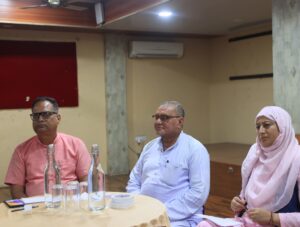
Similarly, Hon. Sanjay Kr. Yadav, Minister of Forest and Environment acknowledged environment friendly nature of e-rickshaw which also serves many people by providing service and creating job opportunity. So, he urged to find alternative of written test as it is connected with the livelihood of many people instead of demotivating them.
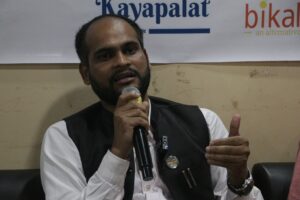
Inspector Surya Bahadur Shahi added that the large number of e-rickshaws increases the risk of accidents, mainly due to traffic congestion and drivers’ lack of awareness about traffic rules. Therefore, he emphasized the need for effective traffic management and awareness on traffic regulations. He also recommended running a campaign collaboratively to inform e-rickshaw drivers about the importance of obtaining a license.
The event formally concluded with Mr. Upreti expressing that the e-rickshaw is a transport system that now directly and indirectly supports the livelihoods of thousands. “City rickshaws have democratized transport for both drivers and commuters,” he noted, “but our systems haven’t evolved fast enough to keep up with this change.
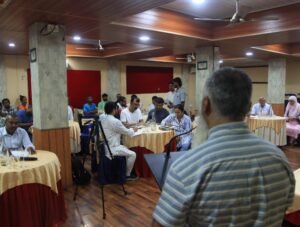
At the end, Upreti thanked all participants for the active participation that made the discussion engaging and impactful. He also emphasized that the responsibility for addressing the city rickshaw dilemma is shared by policymakers, civil society, media, and the transport community alike.
As the event wrapped up, it was clear that the meeting had not only illuminated the issues but also sparked a broader conversation about inclusion, safety, and sustainable urban transport. We believe that the stakeholder meeting will pave the way for meaningful reform in Madesh Province in coming days.
